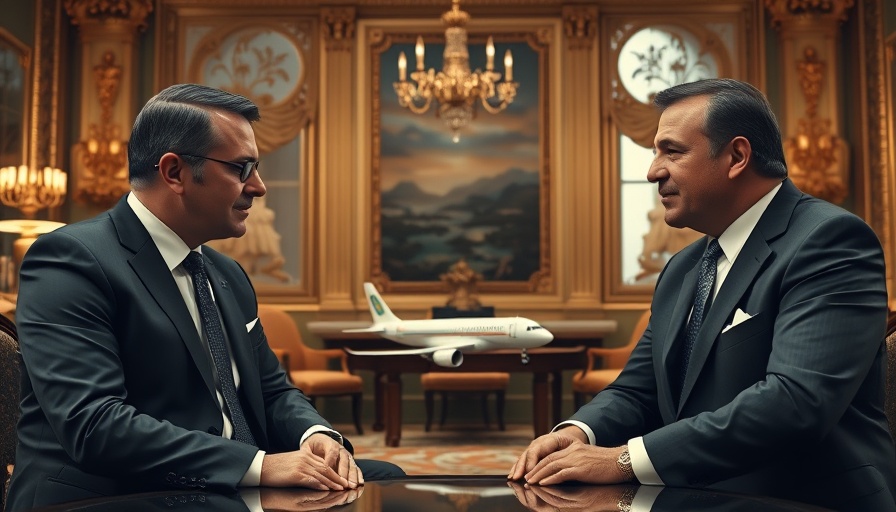
Trump's Bold Stance on Tariffs: A Shift in U.S. Foreign Policy?
In a surprising announcement from the Oval Office, President Donald Trump warned that the United States would impose severe tariffs on Russia if a resolution to the ongoing conflict in Ukraine isn't reached within the next 50 days. This stance reflects not just Trump’s frustration with Russian President Vladimir Putin, but also a possible shift in how the U.S. approaches foreign conflicts.
Understanding Secondary Tariffs and Their Implications
Trump specified that these tariffs would be "secondary," targeting Russia's trading partners. The strategy serves as a means to isolate Moscow from the global economy, a move that raises questions about the effectiveness of economic sanctions in achieving political goals. Historical evidence suggests that secondary sanctions can pressure nations into reconsidering their actions, but effectiveness can vary significantly based on the geopolitical landscape.
Military Aid: Speeding Up Support for Ukraine
During this critical meeting, Trump and NATO Secretary-General Mark Rutte also discussed a renewed push for military aid to Ukraine. European nations, including Germany and Finland, are set to purchase military equipment for Ukraine, highlighting a collaborative approach among NATO allies. Rutte emphasized that speed was essential, stating that timely shipments of support should compel Putin to rethink his position in the ongoing negotiations.
Past Relations and Current Frustrations
Trump's relationship with Putin has historically been friendly, with Trump often commending Putin as a strategic ally. However, as civilian areas in Ukraine suffer relentless attacks, this rapport seems to be fraying. Trump's previous comments have unexpectedly shifted toward criticism of both Russian aggression and Ukrainian leadership, showcasing the complexity of the conflict and his evolving perspective.
Responses From Global Leaders and Military Experts
While Trump's tariff threat has sparked debate within political circles, responses from international leaders and military experts have been mixed. Some argue that imposing tariffs could further escalate tensions, while others view it as necessary leverage in negotiating peace. The risks of backlash from Russia need to be weighed against the potential benefits of increasing pressure on the Kremlin.
Future Predictions: What Lies Ahead for U.S.-Russia Relations?
Looking ahead, the next 50 days could be pivotal for U.S.-Russia relations and the ongoing conflict in Ukraine. Expected reactions to Trump's tariff threats may lead to further militarization or a possible diplomatic opening. How both nations navigate this period will likely shape the geopolitical landscape well into the future.
Engaging Community Perspectives on Global Events
For Central Florida residents, this discussion on tariffs and foreign policy can feel distant yet relevant. The implications of global politics often ripple through local communities, affecting everything from economic stability to public safety. Engaging in conversations about these issues not only informs residents but also empowers them to voice their opinions at local forums and town hall meetings.
The stakes have never been higher as Trump continues to navigate a complex geopolitical environment, balancing domestic expectations with international realities. As community stakeholders, understanding these dynamics is crucial.
As we follow this developing story, it’s essential for our readers to stay informed and engaged. Understanding the nuances behind political decisions can better equip us to participate in local and national conversations about foreign policy that directly impact our lives.
Stay updated with our coverage of this story and more by joining our newsletter!
 Add Row
Add Row  Add
Add 






Write A Comment